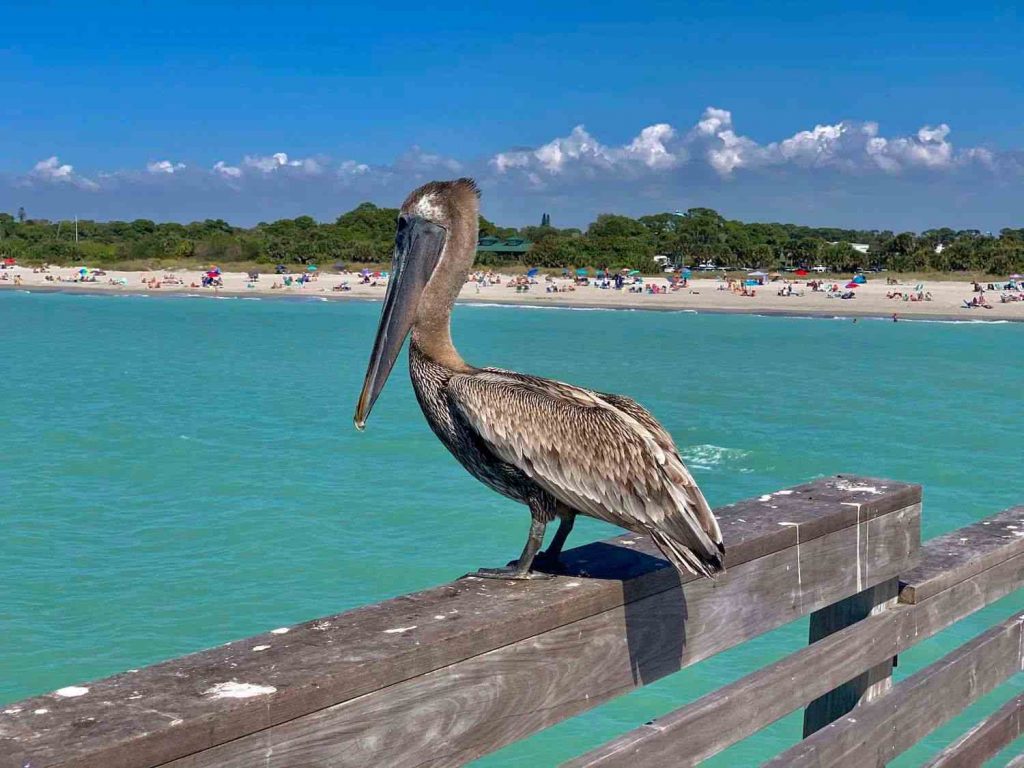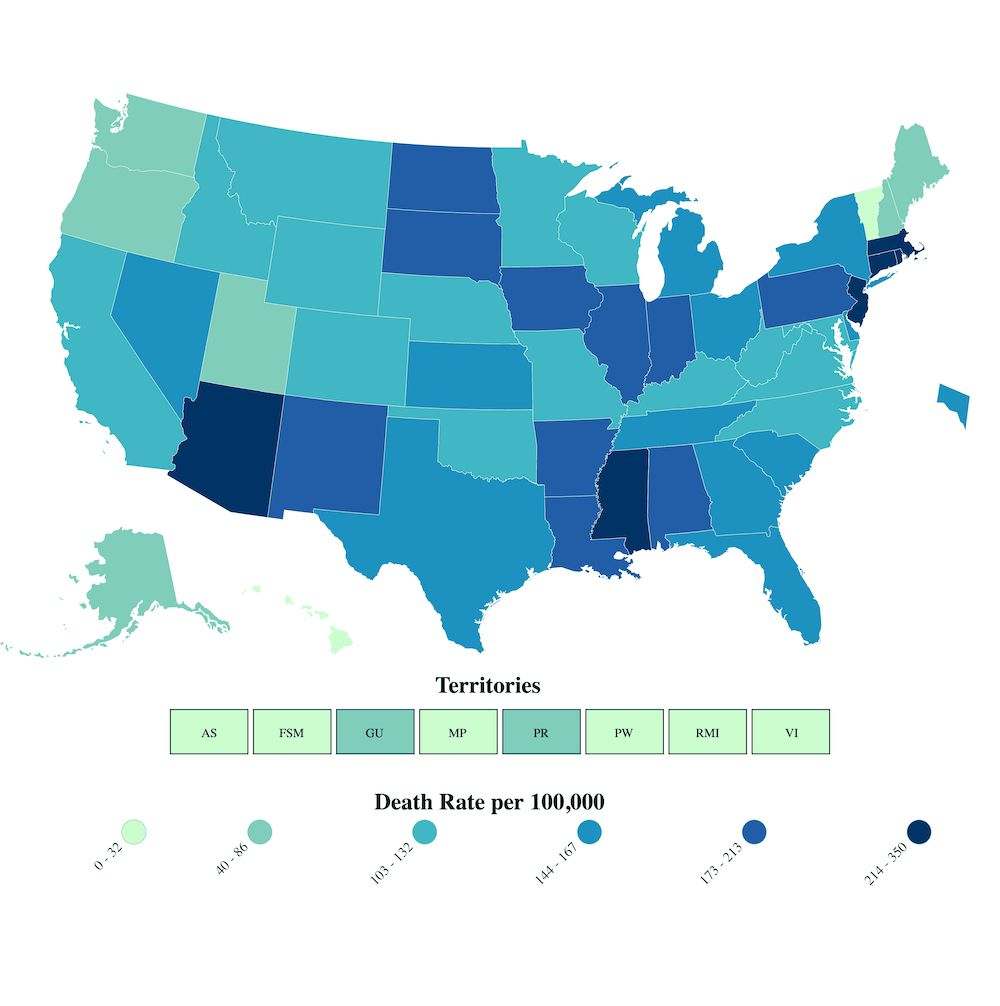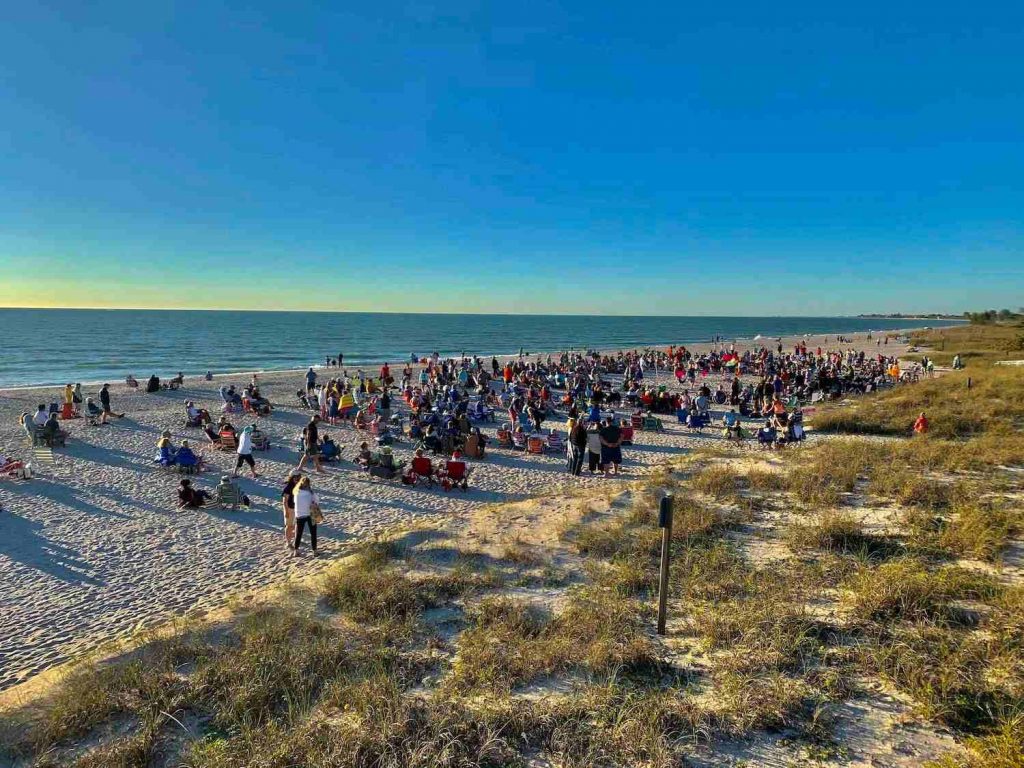Since moving to Oregon five years ago, I’ve hit a wall every mid-February. The glow of the holidays carries me through most of the dreary winter, but after weeks of unabated rain, I flee the Pacific Northwest to soak up precious vitamin D to get me across the early spring finish line.
In 2020, I went to Oaxaca for a month, barely making it out as the pandemic was upending international travel. This year, I confess that in my desperation for sunlight, I flew straight into the heart of Covid country. Yes, folks: I visited my old stomping grounds on the Gulf Coast of Florida.
I knew that the Covid protocols in Governor Kate Brown’s Oregon and Ron DeSantis’s Florida would be vastly different. (I once got yelled at in Eugene for walking along an empty residential sidewalk in the rain without a mask on.) But just as these areas occupy opposite poles of our country’s landmass, so too have their citizens’ responses to this pandemic.
In Oregon, indoor dining has been banned or severely limited since the pandemic began. The Governor has assigned risk levels by county according to case numbers and local businesses comply. At least in Eugene, everyone wears masks indoors and most people wear them outdoors, too. Oregon has been among the top five states in containing the pandemic and keeping the death toll low.
In Florida, indoor dining is at full capacity, bars are open, and hardly anyone wears masks. When going indoors, some Floridians simply pulled their shirts over their noses. Many people, including service workers, had masks dangling around their chins or with their noses exposed. Life in Clearwater, Treasure Island, Venice, and Nokomis seemed pre-pandemic, as if nobody had changed their lifestyle at all.
These two different approaches are reflected in our state outcomes (CDC 3/4/21):
- Cases per 100,000 in Oregon (since 1/20/20): 3,700
- Deaths per 100,000: 52
- Cases per 100,000 in Florida (since 1/20/20): 8,767
- Deaths per 100,000: 144
Coming from progressive Eugene, Florida felt like absolute chaos. It took me a few days to shake my low-key anxiety. I imagined the stew of Covid particles swirling around the mouths of tanned senior citizens. They guzzled their cocktails and threw their heads back in laughter, spewing viral clouds to their wrinkled neighbors. Why didn’t anyone in the Sunshine State seem to care—especially those who would be most vulnerable to the disease?
I wanted to ask Floridians if they’d known anyone who had died of the disease, or if they even thought about it at all. It was an alarming contrast to my home state. Covid has consumed the lives of most people I know in California and Oregon. My friends and family have stayed home, worn masks, canceled plans, put off travel, socially distanced, quarantined after short trips, and signed up for grocery delivery services. It felt deeply unfair that Floridians were being so cavalier while Oregonians had made countless sacrifices. I haven’t seen most of my family and friends in over a year at the recommendation of Dr. Fauci and my governor, but here I realized that some parts of the country have hardly adjusted their lives at all.
Florida has lost more people per capita than roughly half of all states. That doesn’t seem too bad—especially given their large elderly population—but consider one major caveat: there’s strong evidence that Florida’s Covid-19 numbers could be an undercount. Rebekah Jones, a former state data scientist and whistleblower from Tallahassee, claims that her supervisors pressured her to change the state’s infection data. She launched her own data dashboard (Florida COVID Action) and her home was raided by armed police on December 7. They seized her equipment and terrified her children. (As of March 4, 2021, her dashboard indicates that the state death and case counts are underreported by a few thousand and tens of thousands, respectively.)
Assuming the truth falls somewhere within that range, Florida’s cases should be much lower given the state’s significant sunshine advantage. Sunlight has been shown to rapidly denature the Covid-19 virus on surfaces. Humidity has also been shown to potentially slow the spread.
I’m much more comfortable at home with the high levels of social trust and mask-wearing, but with Florida’s retirees partying like it’s 1999—and not seeming to suffer—what has this all been for? Is it better to protect as many people as possible—at any cost and to the detriment of businesses and people’s mental health? Or would a more balanced approach be appropriate?
I felt a swelling mix of resentment and envy toward the careless hedonism of Floridians. My selfishness told me that even if I did catch Covid, I’d likely have a mild case or even be asymptomatic because I’m young and healthy. My pro-social side reminded me that I wear masks and make personal sacrifices not for my own well-being, but because I don’t want to be the person who unknowingly transmits a deadly disease to someone else.
Last April, I wrote a piece titled “America’s Other Disease,” which proved to be prescient. Back then, we’d only had 213,000 confirmed cases across the country. (As of March 4, we’ve suffered 28.51 million confirmed cases.) I suggested that our country’s individualism would prove an impediment to mask-wearing. In Americans’ twisted sense of personal freedom, covering one’s face to prevent the spread of disease is too much of an inconvenience for many. If only Covid-19 could be traced to male impotence, for example, we’d likely eradicate the disease in a month.
As vaccinations become more widely available, the daily threat and anxiety surrounding Covid should begin to abate. I do wonder about the long-term psychological impact on Oregonians and folks from more cautious states. How many people will fear the presence of strangers in the post-pandemic era? How many will continue to feel depressed and become shut-ins? How many relationships will suffer from the stress of long-term confinement? Will these effects be justified by our relatively low death-count?
Anyone who has lost a friend or a member of their family would say yes. I’m proud of Oregon’s response to the disease and recognize how many more people we would have lost given Governor Ron DeSantis’ approach.
And just this week, Governors Greg Abbott (TX) and Tate Reeves (MS) have lifted their mask mandates and business restrictions. We’ll see how these “leaders’” commitments to toxic individualism play out. Is it really so difficult for folks to wear masks? Half-a-million dead Americans and their families certainly don’t think so.



